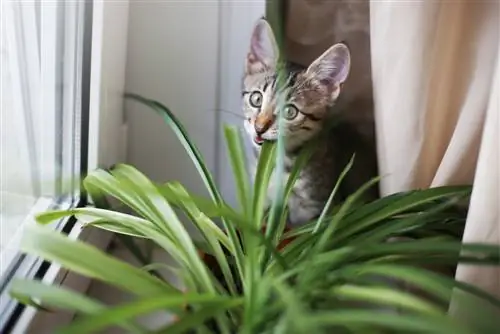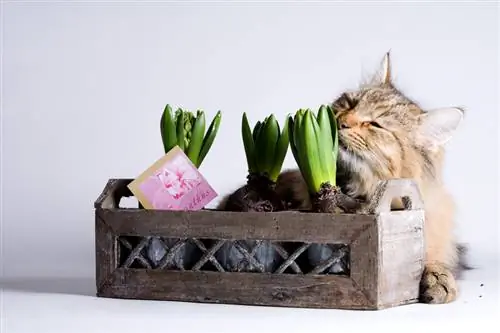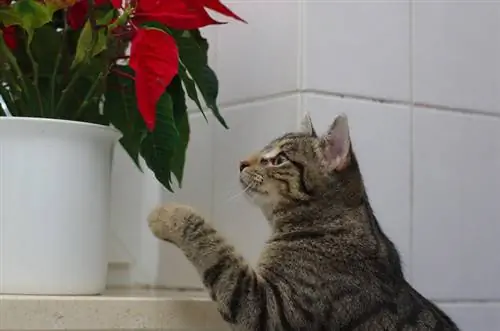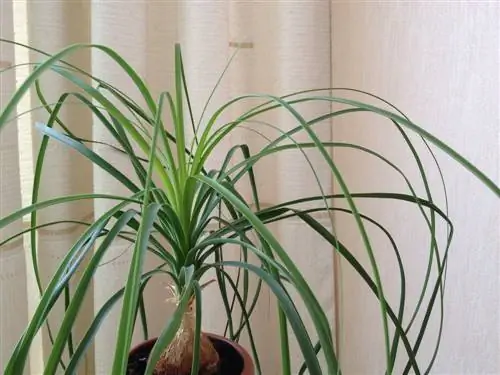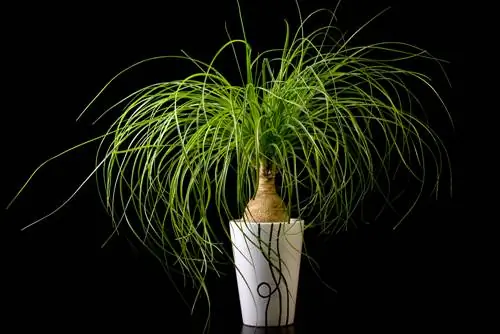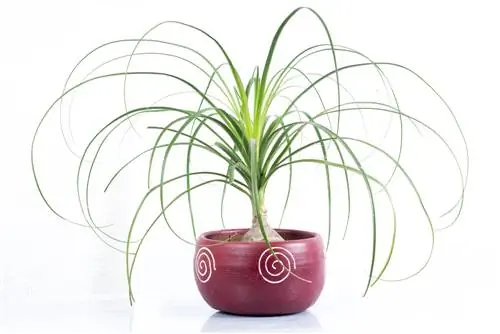- Author admin leonars@hobbygardeners.com.
- Public 2023-12-16 16:46.
- Last modified 2025-01-23 11:22.
If you have a cat, you should avoid one or two green plants in your apartment, because many house plants are poisonous for the little cats. Unfortunately, the decorative and easy-care elephant foot also belongs to this category.
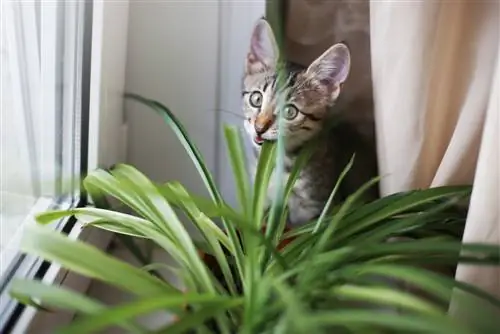
Is elephant foot poisonous to cats?
Elephant foot is poisonous to cats because it contains saponins, which can cause malaise, nausea, vomiting, dizziness, abdominal pain and cramps. It is advisable for pet owners to avoid using this plant or to place it out of reach of the animals.
The long, narrow leaves easily entice cats to play with them or nibble on them. Unfortunately, elephant foot is not only poisonous to cats but also to other animals and small children. It's best to consider this before you buy, but at the latest when choosing a location. Make sure that the plant is not within the reach of animals or small children.
What symptoms can elephant foot cause?
The first symptoms of elephant foot poisoning may not be easy to recognize from the outside and include malaise, dizziness, nausea and fatigue. Vision problems, abdominal pain and cramps are also among the symptoms that may be difficult to recognize. If you suspect your cat of nibbling the elephant's foot, then watch the animal closely.
When your cat vomits after nibbling on the elephant's foot, you should pay attention. Repeated consumption can also lead to chronic intestinal inflammation, which is very painful for your animal. In this case, take your cat to the vet immediately.
The most important things in brief:
- poisonous for cats, small animals and birds, but also for small children
- contains saponins
- possible symptoms: malaise, nausea, vomiting, dizziness, abdominal pain, cramps
- can cause gastroenteritis and chronic intestinal inflammation
Tip
If you have a cat, avoid using an elephant foot or place it so that it is out of reach for your animal.

